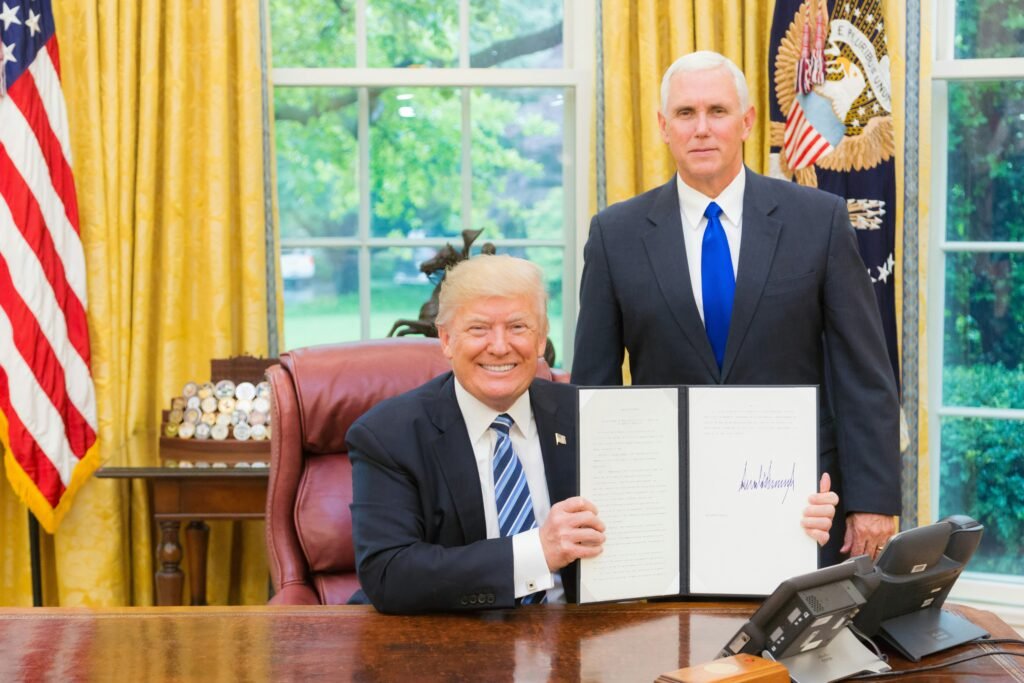In a surprising move that eased immediate market tensions, the Trump administration adopted a notably softer stance on China during its first week in office. Investors around the globe welcomed the unexpected respite, pushing markets higher as fears of a trade war temporarily subsided. While this initial approach signals a strategic pause, analysts caution that future policy could still shift toward a tougher line, keeping investors cautiously optimistic.
Market Relief as Early Administration Avoids Immediate Escalation
Wall Street responded positively following statements from senior officials indicating a more measured approach toward China. The S&P 500 closed up 1.3% on the first trading day of the year, while Asian markets, including Japan’s Nikkei and Hong Kong’s Hang Seng, also experienced gains. Traders interpreted this as a sign that aggressive tariffs or punitive trade measures might be delayed or reconsidered.
The U.S.-China trade relationship has been under intense scrutiny for years, with concerns over intellectual property theft, unfair subsidies, and trade imbalances dominating headlines. During the campaign, Trump promised a hardline policy against Beijing, threatening tariffs and labeling China a currency manipulator. However, in the first week, the administration signaled a more diplomatic approach, aiming to avoid immediate economic disruption.
Diplomatic Signals Point to Strategic Patience
White House economic advisors emphasized the importance of maintaining open channels with Beijing. Treasury Secretary Steven Mnuchin, in his first public remarks, underlined the need for “constructive engagement” rather than “reactionary policies” that could harm both economies.
“We are focused on ensuring a fair and balanced trade relationship, but we recognize the importance of stability in global markets,” Mnuchin said at a press briefing. This tone contrasts with the aggressive rhetoric seen during the campaign and has been welcomed by multinational corporations concerned about supply chain disruptions.
Experts believe this approach allows the administration time to assess China’s responses and leverage negotiations without triggering a full-scale trade conflict.
Impact on Global Markets and Supply Chains
Markets across Europe and Asia showed cautious optimism, with the Euro Stoxx 50 and FTSE 100 edging higher on the news. China’s Shanghai Composite also gained, reflecting relief that immediate retaliatory measures were unlikely.
Global supply chains, particularly in technology and manufacturing sectors, are sensitive to U.S.-China trade policies. An immediate escalation could have resulted in disrupted shipments and increased costs for companies relying on cross-border cooperation. The administration’s softer tone helped calm concerns over tariff-induced inflation and supply shortages.
Future Policy Remains Uncertain
Despite the initial market relief, analysts warn that this softness may be temporary. Several administration insiders suggest that once foundational assessments are complete, tougher measures could be introduced to address longstanding trade imbalances.
Trade expert Laura Chen of the Asia-Pacific Economic Forum commented, “This first week’s approach is more about stabilizing markets and buying time. The underlying issues with China remain, and we expect to see policy shifts, possibly more targeted tariffs or regulatory pressures, in the coming months.”
Investors are advised to monitor trade developments closely, as shifts in rhetoric or policy announcements could quickly alter market dynamics.
Political Implications and Global Reactions
The more cautious early stance may also be a calculated political move, aimed at softening global perceptions while the new administration settles in. European leaders have expressed hope for renewed dialogue on trade and economic cooperation, welcoming the less confrontational tone.
China’s Ministry of Commerce responded cautiously, emphasizing its commitment to “mutually beneficial” trade but signaling readiness to defend its interests if necessary.
Conclusion
The Trump administration’s decision to ease up on China during its first week has brought a welcome pause to escalating trade tensions, lifting markets and calming investors. However, the situation remains fluid, and future policy could still veer toward tougher measures as strategic objectives crystallize.
Investors and stakeholders worldwide should stay alert to forthcoming signals from Washington and Beijing, as this delicate balancing act will shape the global economic landscape in 2025.
Disclaimer: This article is for informational purposes only and does not constitute financial advice.


















